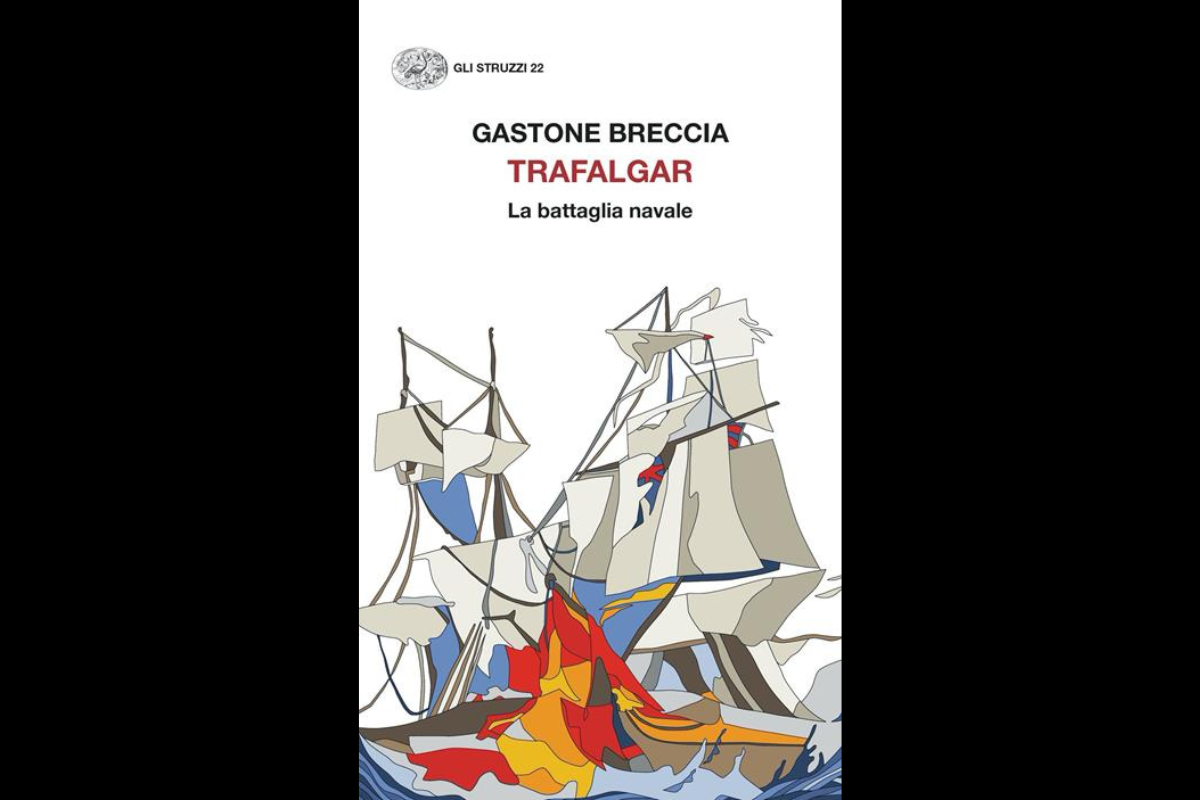Relive the epic battle of Travalgar

“Trafalgar. The naval battle” by Gastone Breccia read by Tullio Fazzolari
There are no longer the great naval battles of the past… If this statement, as is likely, causes a bit of dismay, it is advisable to make a comparison to understand its meaning. On the one hand, the news arriving from the Black Sea or the Red Sea: an entirely technological war with missiles and drones of which only the devastating effects can be seen. There is nothing human anymore. On the other hand, to demonstrate the difference with the past, "The Battle of Trafalgar" is enough, the painting by William Turner exhibited at the Greenwich Museum in London and created exactly one hundred years ago on commission from the King of England to commemorate Nelson's victory . And in this case we see the suffering and heroism of men.
There was ferocity but there was also, and today there is no longer, something epic that Gastone Breccia, history professor at the University of Pavia, describes well with “Trafalgar. The naval battle” (Einaudi, 322 pages, 18 euros). The book is first of all a meticulous reconstruction of how the events unfolded on October 21, 1805, starting with the two sides. The French fleet together with the Spanish allies could boast a clear numerical superiority. But the British one had more experienced crews and officers. And, above all, he could count on the strategic genius of his commander in chief, Admiral Horace Nelson. The English victory was determined by his intuition which revolutionized the tactics of naval combat. Instead of arranging his ships parallel to the enemy ones as was customary to attack each other with cannon fire, Nelson advanced his fleet in two columns, splitting and disrupting the opposing line. In this way the Franco-Spanish superiority in vessels and cannons was completely eliminated. But the battle was terrible. Almost 2,500 French and Spanish sailors were killed while the English lost just over 450, including Admiral Nelson. The enthusiasm for the great victory was immediately overwhelmed by the despair at the serious loss of the brilliant commander. Simple sailors and high officials, as Gastone Brescia recounts, burst into tears like children. As always, the stories of winners and losers take different paths. The British will receive handsome prize money for each ship sunk. The French commanders will be tried for their negligence.
“Trafalgar. The naval battle”, however, is not just the story of a war event. Like Patrick O'Brian's novels (which inspired the film “Master and Commander” with Russell Crowe) it is also above all a story of seafarers. An example of this is the letter to the father of the sailor who lost three fingers on his left hand but can still write with his right and is happy to be alive. It is interesting the commitment with which they try, often unsuccessfully, to prevent captured ships from sinking. And to help the reader better navigate this story, Gastone Breccia places an effective glossary of maritime terms in the appendix. And reading it is certainly more fascinating than the acronyms for drones and missiles.
This is a machine translation from Italian language of a post published on Start Magazine at the URL https://www.startmag.it/mondo/trafalgar-gastone-breccia/ on Sun, 21 Apr 2024 05:28:10 +0000.
